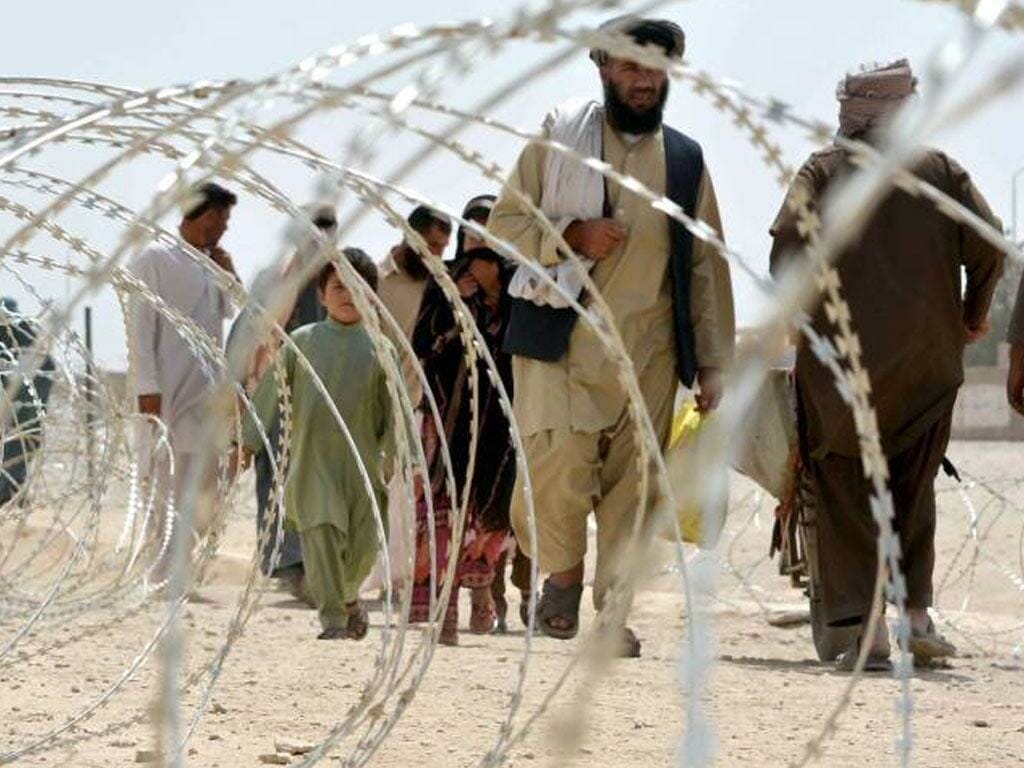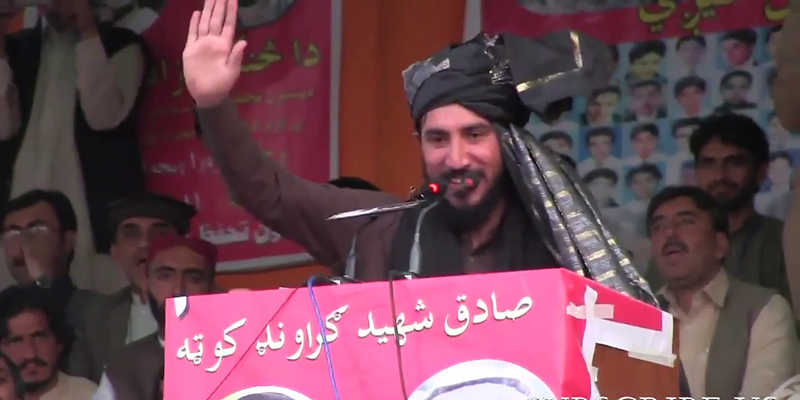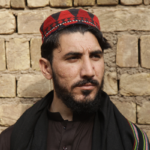Introduction
This piece is based on conversations with relatives who had attended the Pashtun Long March (PLM) in Islamabad, their hopes at the ten (10) day sit-in and views about the Pashtun Tahafuz Movement (PTM), almost two months since the protest in Islamabad.
In part one I will compare their views about PLM & PTM. In part two I will opine on the transformation of PLM into PTM. Finally, I will discuss the State’s response to both PLM and PTM and conclude with how the State and PTM treated the individuals discussed in the first part.
Part One: From Pashtun Long March (PLM) to Pashtun Tahafuz Movement (PTM)
A young Pashtun from the Federally Administered Tribal Areas (FATA), Naqeeb Mehsud, was murdered in a racially profiled killing claiming him to be a terrorist. The murderer, a police officer, was not only known for extra-judicial murders but also widely perceived to operate under the patronage of the PPP, Pakistan’s largest secular, liberal and relatively pro-Western political party.
After growing social media outrage, a core group of Mehsud tribesman from FATA, took their peaceful and relatively small protest to the streets of Pakistan’s capital city, Islamabad. The protest, termed Pashtun Long March (PLM), grew and within days had amalgamated demands to redress injustices borne by Pashtuns in Pakistan. The protest eventually ended after a ten (10) day sit-in.
A Pashtun myself, an Afridi, I have extended family and friends who reside in FATA and many had made the journey to Islamabad to have their voices heard. I was fortunate enough to hear their first-hand accounts. To them, PLM was a chance for Pashtuns from various areas and walks of life to finally channel their grievances and call attention to the usurpation of their rights. They were full of hope and had a genuine optimism that finally their issues had a platform.
Views on PLM
Among those protesting was one of my aunts. Her youngest son had been a soldier in Pakistan’s military and had lost his life in an operation against terrorists who had facilitated an attack on Peshawar’s Army Public School (APS), slaughtering 132 children. She spoke to me with absolute pride in his son’s sacrifice and then chided the state because, despite his actions, his family in FATA did not have the basic human rights all other Pakistanis took for granted.
One of my uncles, a former activist for the Pashtun nationalist party ANP, was there. He had lost a son in terrorist attack in Kabul and two grand-daughters during the Pakistan military’s anti-terror operations in FATA. His younger brother was killed by an improvised explosive devise (IED) planted by who turned out to be Afghan terrorists sheltering in FATA. His brother was targeted because his son volunteered in one of FATA’s tribal levies, the khassadaars, fighting alongside Pakistan’s Army during the anti-terror operation that had taken the lives of my uncle’s grand-daughters. PLM for him highlighted Pashtun suffering. His most vehement criticism was for nationalists who had, in his words, prostituted Pashtun suffering to play power politics. Many like him had shot down ANP and PkMAP representatives who had belatedly attended the PLM to divert the protest to spew anti-military venom.
Also present was one of my cousins, a young lawyer and political activist who had assisted the Political Parties Joint Committee on FATA Reforms (PPJCFR). A fierce critic of Pakistan’s present PMLn government for first diluting and then shelving plans for FATA reforms. Two of his brothers had died in the past decade. One was assassinated as a retaliation by a rival tribe who had ‘lost face’ after PPJCFR recommendations were shelved. My cousin had negotiated their support for the reforms, assuring them, this time, the government was sincere. The second brother was abducted by masked men in military uniforms, one among the thousands of ‘enforced disappearances’. After years of effort my cousin was able to find his shallow grave. Abducted and killed by an Afghanistan based Uzbek terror-lord’s men in retaliation for Pakistan military’s operations against them in FATA. At PLM, as part of a group of lawyers, he had heckled Asma Jehangir, Pakistan’s eminent, now deceased, human rights’ activist, when she tried to colour the protest against the military. Having worked against done strikes and for FATA reforms, he and his companions were acutely aware of her role in playing down civilian deaths by US drone strikes and her newfound enthusiasm to defend Pakistan’s now disgraced Prime Minister who, on an individual whim, had shelved FATA Reforms in 2013. For him PLM was about FATA and the rights of Pashtuns, not a stage for anyone’s anti-military rhetoric.
Another cousin, a young human rights activist, was also at PLM. Educated in the UK she had returned to Pakistan to work for gender equality, education and the empowerment of Pashtun women. She had assisted several charitable organisations including the now widely recognised ‘Girls Aware’. Married to another Pashtun activist, the couple had refused to leave Swat during the worst of the Taliban oppression, survived assassination attempts and sheltered street-orphans throughout the eventual military operation. She had encouraged many Pashtun women living in Islamabad to participate in PLM. She saw PLM as a vehicle that would finally bring the plight of Pashtun women to the fore.
They inspired my twitter thread. They had all borne the brunt of suffering and injustices befallen the people in the Pashtun dominated Khyber Pakhtunkhwa (KP) province and FATA. Despite this, they were exceedingly optimistic that finally an avenue had become available to channel their grievances and ask for their rights as Pakistanis and, above all, as human beings. PLM was a movement devoid of the power-political nationalists, hate-filled anti-military activists and cheap publicity seekers. PLM was fiercely proud of the numerous sacrifices Pashtuns had made, as civilians, soldiers and volunteers, for the defence of Pakistan.
PLM was a movement about ‘their’ rights and grievances.

The Betrayal of the Pashtuns of FATA
Saeed Afridi currently works at the Department of Politics and International Relations, University of Westminster. Saeed does research in Foundations of Political Theory, International Security, Energy Security and Complexity Theory in International Relations.





